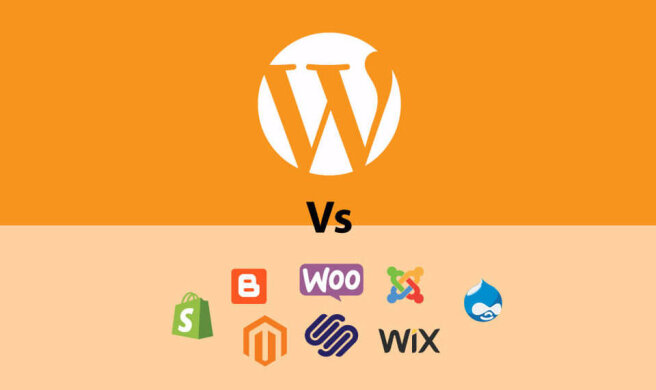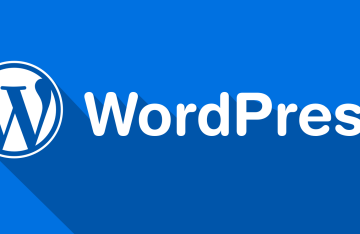10 WordPress competitors. Comparison, pros and cons

Introduction
WordPress is a widely popular website builder, powering approximately 43% of all websites globally. It offers a range of features, making it a preferred choice for many. However, there are several reasons why individuals and businesses may seek alternatives to WordPress.
Popular Alternatives to WordPress
Wix
Wix is a user-friendly website builder that allows individuals with no coding experience to create stunning websites. With its drag-and-drop interface, Wix makes website building a breeze. It offers various templates and customization options, catering to different industries and needs. Additionally, Wix provides SEO tools, e-commerce functionality, and reliable hosting.
Squarespace
Squarespace is another popular alternative to WordPress, known for its visually appealing templates and intuitive interface. It offers an all-in-one platform that includes website building tools, domain registration, and hosting. Squarespace is an excellent choice for creative professionals, artists, and small businesses looking to showcase their portfolios or online stores.
Weebly
Weebly is a user-friendly website builder that focuses on simplicity and ease of use. It provides a drag-and-drop interface and a wide selection of customizable templates. Weebly offers e-commerce capabilities, allowing users to create online stores effortlessly. Additionally, it provides reliable hosting, built-in SEO features, and mobile responsiveness.
Joomla
Joomla is a powerful content management system (CMS) that offers advanced features for website development. It is highly customizable, making it suitable for building complex websites such as corporate portals, online magazines, and e-commerce platforms. Joomla has a thriving community and a vast library of extensions, providing endless possibilities for website customization.
Drupal
Drupal is another robust CMS that offers advanced features and high scalability. It is known for its flexibility and ability to handle large and complex websites. Drupal is often chosen for community-based websites, government portals, and enterprise-level applications. It provides extensive customization options, strong security features, and multilingual support.
Ghost
Ghost is a minimalist CMS designed specifically for bloggers and content creators. It focuses on simplicity and distraction-free writing. With its intuitive editor, Ghost allows users to create beautiful blog posts with ease. It offers built-in SEO tools, responsive themes, and a user-friendly interface, making it a solid alternative for individuals looking for a streamlined blogging platform.
Magento
Magento is a powerful e-commerce platform that caters to businesses of all sizes. It provides extensive customization options, allowing businesses to create unique and feature-rich online stores. Magento offers robust inventory management, marketing tools, and multiple payment gateway integrations. It is an ideal choice for businesses with complex e-commerce requirements.
Shopify
Shopify is a leading e-commerce platform that simplifies the process of building and managing online stores. It offers a wide range of professionally designed templates, mobile responsiveness, and secure hosting. Shopify provides seamless integration with various payment gateways, inventory management, and marketing tools. With its user-friendly interface, Shopify is suitable for both beginners and experienced entrepreneurs.
BigCommerce
BigCommerce is a comprehensive e-commerce platform that enables businesses to create and manage online stores with ease. It offers a range of customizable templates, SEO tools, and secure hosting. BigCommerce provides advanced features such as product variants, inventory management, and integration with popular marketplaces. It is an excellent choice for businesses looking for a scalable and feature-rich e-commerce solution.
PrestaShop
PrestaShop is an open-source e-commerce platform that empowers businesses to create and manage online stores efficiently. It offers a user-friendly interface, customizable templates, and extensive e-commerce functionality. PrestaShop provides a range of modules and add-ons to enhance the features of your online store. It is suitable for businesses of all sizes, from small startups to large enterprises.
Conclusion
In summary, there are numerous alternatives to WordPress that cater to different website needs and preferences. Whether you are looking for a user-friendly website builder like Wix, Squarespace, or Weebly, or a robust CMS like Joomla or Drupal, you have plenty of options to choose from. Additionally, if you are focused on blogging, platforms like Ghost offer a minimalist and efficient writing experience.
For e-commerce needs, Magento, Shopify, BigCommerce, and PrestaShop provide feature-rich solutions to help businesses create and manage online stores successfully. These platforms offer e-commerce functionality, customization options, and integration with various payment gateways.
While WordPress remains the most popular website builder, exploring alternatives can provide unique benefits and cater to specific requirements. By considering the alternatives mentioned above, individuals and businesses can find the best fit for their website or online store.


